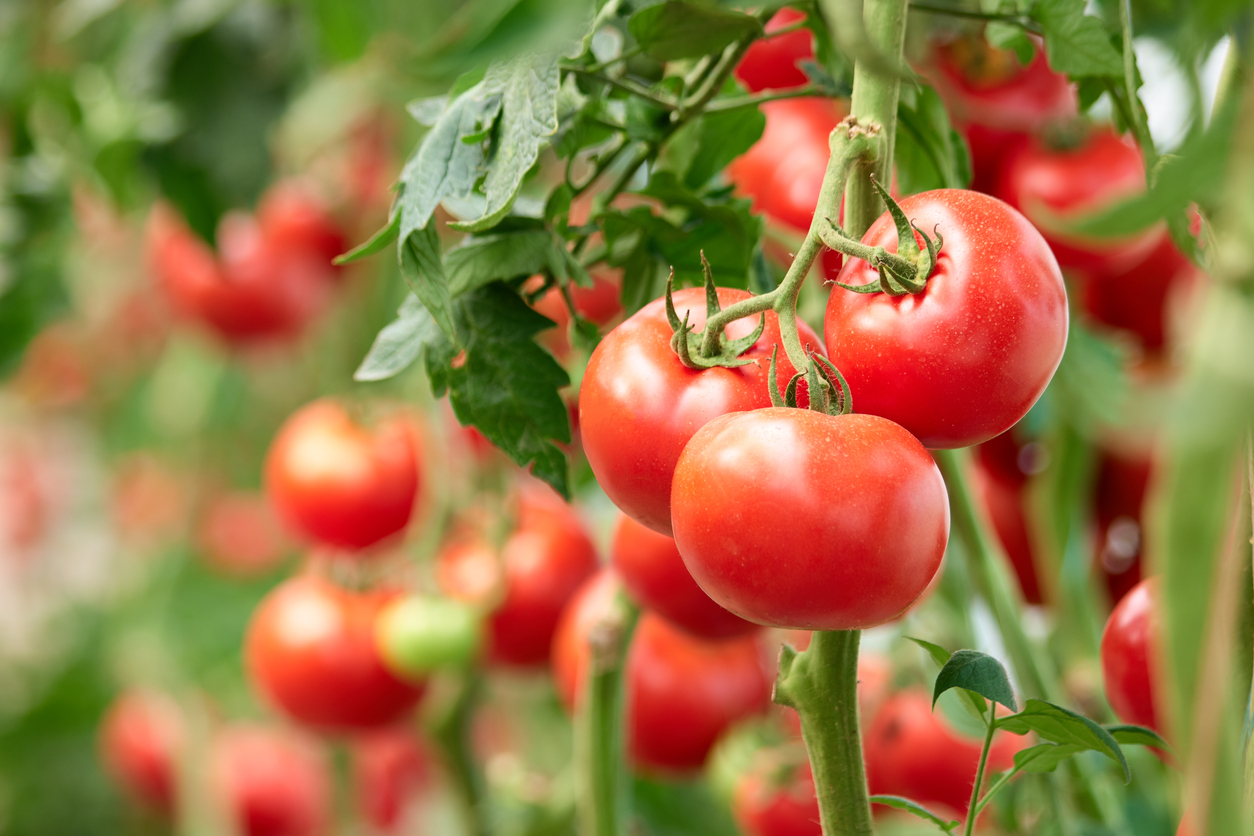
Developing Ozone Tolerance in Tomato Might Interfere with Plant Disease Management
October 30, 2019| |
Researchers from Universidad de Buenos Aires, Argentina examined two cultivars of tomato to investigate the effects of elevated O3 on the severity of bacterial disease. The results are published in Plant Biology.
Tropospheric ozone (O3) is a major air pollutant that affect plant growth and productivity. In the next 50 years, concentrations of O3 are projected to increase, which will have an impact on plant responses to diseases. Thus, next management strategies must be devised to ensure food production. In the study, the two cultivars with different tolerance levels to ozone were exposed to Xanthomonas vesicatoria (Xv9) pathogen.
Results showed that ozone increased the severity of the bacterial disease by up to 40 percent in both tomato cultivars. In the more tolerant cultivar, exposure to ozone increased disease intensity, even after applying a product to enhance resistance. In the more susceptible cultivar, level of disease attained depended on the oxidative balance that resulted from other stress factors.
The researchers concluded that the antioxidant capacity of the plant during infection is vital in controlling the progression of the disease. Development of O3 tolerance in commercial crops might impose a penalty cost in terms of disease management under projected higher O3 concentrations.
Read the Early View of the article in Plant Biology.
| |
You might also like:
- Tomato (Lycopersicon esculentum) GM Events - GM Approval Database
- USDA Approves Field Trials of Gene-edited, Virus Resistant Tomatoes
- Tomato Jumping Genes Could Help Speed-breed Drought Resistant Crops
Biotech Updates is a weekly newsletter of ISAAA, a not-for-profit organization. It is distributed for free to over 22,000 subscribers worldwide to inform them about the key developments in biosciences, especially in biotechnology. Your support will help us in our mission to feed the world with knowledge. You can help by donating as little as $10.
-
See more articles:
-
News from Around the World
- 'Oppressively burdensome' Gov't Regulations Impede Longed-for Approval of Golden Rice
- Biotech Soybeans Now Cover 50% of the World's Biotech Crop Area
- Niger Parliament Approves National Biosafety Law
- International Research Team Traces Family Tree of More than 1,100 Green Plants Over 1 Billion Years
- Scientists 'Vaccinate' Plant to Boost Defense Against Pest
- Young NZ Scientists Appeal for Overhaul of GM Research Regulations
- Study Finds Organic Farming is Worse for Climate Change
-
Research Highlights
- Interplay between miR156/SPL13 and DFR/WD40–1 Affects Drought Tolerance in Alfalfa
- Developing Ozone Tolerance in Tomato Might Interfere with Plant Disease Management
-
Plant
- CRISPR-Cas9 Used to Reduce Seed Dormancy in Rice
- Harvard, MIT Experts Develop New Gene Editing Technology
-
Read the latest: - Biotech Updates (December 10, 2025)
- Gene Editing Supplement (December 17, 2025)
- Gene Drive Supplement (February 22, 2023)
-
Subscribe to BU: - Share
- Tweet

